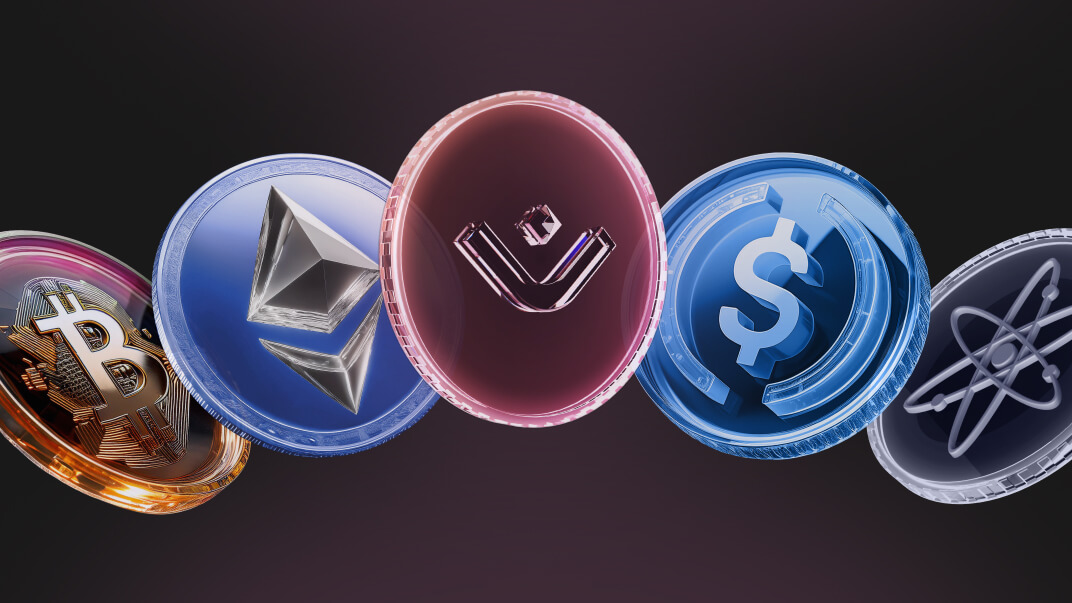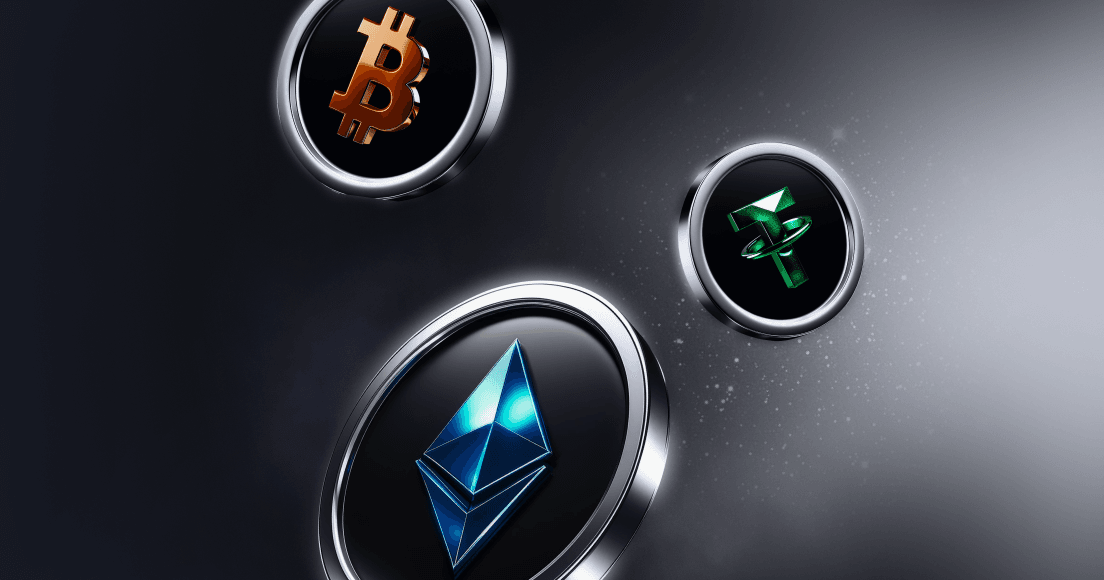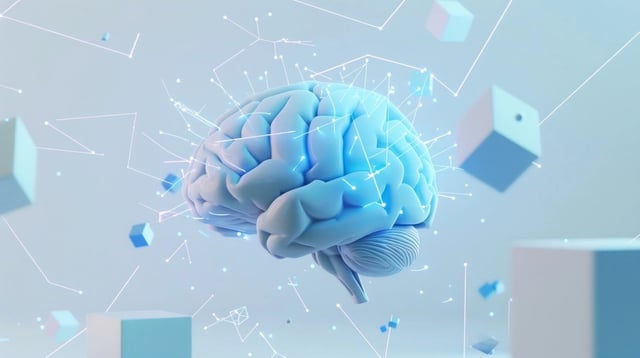AI Tokens: The New Spoiler in the Crypto Market Drama

A few months ago, everyone wanted a piece of the AI pie. From normal traders to venture capitalists, the buzzwords were the same: “machine learning,” “neural networks,” “autonomous trading.” Suddenly, every other crypto project rebranded itself with “AI” in its name, as if those two letters alone could guarantee a moonshot.
But in early November, the charm seemed to wear off. The so-called “AI tokens” which are the digital assets tied to artificial intelligence narratives, led a steep market pullback, falling by almost 5% within 24 hours and dragging the broader crypto market down with them. The irony was thick; the very narrative that had reinvigorated investor confidence in mid-2025 had now become the market’s Achilles heel.
So, what exactly happened? And more importantly, what does it reveal about how hype and innovation are shaping the crypto world today?

When Tech Meets Speculation
At first glance, the marriage of artificial intelligence and blockchain sounds like a match made in Silicon Heaven. AI can process massive data sets as blockchain provides transparency and trust. Together, they promise smart systems that can predict, analyze, and execute without human bias, the perfect dream scenario for the next phase of digital finance.
And to be fair, some projects are genuinely building toward that dream. Tokens like Fetch.ai (FET), SingularityNET (AGIX), and Render (RNDR) have been at the forefront, developing decentralized AI marketplaces, computation services, and rendering tools that aim to decentralize the very powerhouses of AI monopolies.
But as the hype intensified, the line between innovation and illusion blurred. Dozens of “AI-powered” coins began popping up, many with little more than a flashy website and a whitepaper full of tech jargon. Investors, lured by the promise of “the next NVIDIA of crypto”, poured money into projects that, in truth, had as much AI as a calculator.
This is where the drama begins.
The Rise and Fall of the Narrative
Crypto has always been driven by stories. Bitcoin had the story of rebellion. Ethereum had the story of innovation. NFTs had the story of creativity. In 2025, the market found its new storyteller: AI.
When ChatGPT and other generative AI tools exploded into mainstream consciousness, crypto followed. Developers began promising decentralized AI assistants, trading bots powered by “machine learning,” and even blockchains that could “think.” Investors didn’t wait for proof, they just bought the narrative.
And for a while, it worked. Between March and August 2025, AI tokens saw massive gains, with some surging over 300%. Social media was flooded with hashtags like #AICryptoRevolution and #DeFutureIsAI. Influencers who couldn’t code a line of Python suddenly became “AI evangelists.”
But then came the correction. As reported by TradingView on November 3, 2025, the AI-token sector dropped nearly 5% in a single day, leading the overall crypto market down. Bitcoin wobbled, Ethereum stuttered, and the AI-crypto sector, which was once the market’s darling, became its downfall.
The question is: why?
Hype Without Substance
The truth is that many of these AI tokens were never built to last. Their problem wasn’t technological, it was psychological.
Investors have always been hungry for “the next big thing.” In 2021, it was DeFi. In 2022, it was NFTs. In 2023, it was the metaverse. By 2025, it was AI. Each wave started with genuine innovation, but quickly got diluted by speculative clones chasing quick profits.
AI tokens were no different. While a handful of teams worked on legitimate AI-blockchain integrations, most simply slapped “AI” onto a token description to ride the trend.
A 2025 report by CoinGecko showed that over 60% of newly launched AI tokens had no functional product, not even a minimum viable prototype. Yet, these coins raised millions in presales, purely on the promise of “AI disruption.”
That illusion could only last so long. As market liquidity tightened and global investors became more risk-averse, the cracks began to show.
Projects missed deadlines, whitepapers proved hollow, and token prices tumbled. The result became a collective realization that not every crypto project needs AI and not every AI project needs crypto.
The Double-Edged Sword of Innovation
This isn’t to say AI has no place in blockchain. In fact, the synergy between the two could redefine how decentralized systems function.
For instance, AI can help optimize blockchain performance like predicting network congestion, improving transaction routing, or detecting anomalies that signal fraud. In turn, blockchain can make AI systems more transparent, allowing users to verify data sources and prevent algorithmic bias.
However, the road to genuine AI-crypto convergence is long, expensive, and research-intensive. And that is not the kind of road speculative traders want to travel. They want quick returns, not patient progress. The market, driven by short-term euphoria, often fails to distinguish between genuine research projects and marketing stunts.
The collapse of over-hyped AI tokens, then, is not just a market correction, it is a cultural reset. It is a reminder that technology without utility is just noise.

Human Psychology: The Real Market Driver
What the recent pullback really exposed is not the weakness of AI or blockchain, but of human behaviour.
Crypto markets are emotional ecosystems. They thrive on excitement, fear, and FOMO (Fear of Missing Out). When narratives like “AI” enter the space, they tap directly into the psychological need to not be left behind.
Social media amplifies that effect. A single influencer tweet can cause a token to skyrocket overnight. Telegram groups, X threads, and Discord channels create echo chambers that reward belief and punish doubt.
So when the hype cycle turned, when the first few tokens began dropping, panic spread just as quickly as optimism had. The same influencers who preached “AI will change everything” began quietly deleting posts. The believers became skeptics, and the skeptics said, “I told you so.”
Markets move on sentiment, not just spreadsheets. And right now, the sentiment toward AI tokens is bruised.
The Lesson for Everyday Investors
For investors, especially younger ones in emerging economies, this is a moment for reflection.
AI tokens, like all speculative assets, are double-edged swords. They can offer astronomical returns when timed right, but they can also evaporate faster than a meme coin. What differentiates smart investing from blind gambling is due diligence.
Ask the right questions:
What does this project actually do? Does it have a working prototype? Are the developers credible? Is AI genuinely part of its function or just its name? And perhaps most importantly, is the excitement justified by evidence?
In a world where buzzwords can inflate valuations overnight, skepticism is survival.
The Future: Post-Hype, Pre-Revolution
Despite the downturn, the intersection of AI and blockchain isn’t dead. If anything, it is entering a more serious phase where the noise has faded and real builders can work.
Projects focused on AI data privacy, decentralized compute power, and AI model verification still hold promise. As regulation tightens and investor education improves, we may see fewer cash-grabs and more credible systems that merge AI’s intelligence with blockchain’s transparency.
Until then, the AI-token saga remains a powerful case study, a mirror reflecting our collective impatience in a market that demands both innovation and restraint.
As one crypto analyst quipped after the November dip, “AI tokens didn’t break the market, they just showed us how human it still is.”
You may also like...
When Sacred Calendars Align: What a Rare Religious Overlap Can Teach Us

As Lent, Ramadan, and the Lunar calendar converge in February 2026, this short piece explores religious tolerance, commu...
Arsenal Under Fire: Arteta Defiantly Rejects 'Bottlers' Label Amid Title Race Nerves!

Mikel Arteta vehemently denies accusations of Arsenal being "bottlers" following a stumble against Wolves, which handed ...
Sensational Transfer Buzz: Casemiro Linked with Messi or Ronaldo Reunion Post-Man Utd Exit!

The latest transfer window sees major shifts as Manchester United's Casemiro draws interest from Inter Miami and Al Nass...
WBD Deal Heats Up: Netflix Co-CEO Fights for Takeover Amid DOJ Approval Claims!

Netflix co-CEO Ted Sarandos is vigorously advocating for the company's $83 billion acquisition of Warner Bros. Discovery...
KPop Demon Hunters' Stars and Songwriters Celebrate Lunar New Year Success!

Brooks Brothers and Gold House celebrated Lunar New Year with a celebrity-filled dinner in Beverly Hills, featuring rema...
Life-Saving Breakthrough: New US-Backed HIV Injection to Reach Thousands in Zimbabwe

The United States is backing a new twice-yearly HIV prevention injection, lenacapavir (LEN), for 271,000 people in Zimba...
OpenAI's Moral Crossroads: Nearly Tipped Off Police About School Shooter Threat Months Ago
ChatGPT-maker OpenAI disclosed it had identified Jesse Van Rootselaar's account for violent activities last year, prior ...
MTN Nigeria's Market Soars: Stock Hits Record High Post $6.2B Deal

MTN Nigeria's shares surged to a record high following MTN Group's $6.2 billion acquisition of IHS Towers. This strategi...
